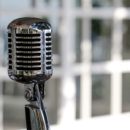Sensorimotor OCD & Social Anxiety Differential Diagnosis: “Obsessive Swallowing”
Reader Question: For the past year, I have been dealing with OCD-related sensorimotor obsessions focused on swallowing. My symptoms started during a class discussion in which I noticed myself swallow. Since then, whenever I am in a lecture or quiet place surrounded by people, I become deeply focused on my own swallowing and worry that others will notice my swallowing and then judge me. I am practicing meditation and daily exposures in which I sit down in a quiet room and intentionally invite the swallowing in. I also purposefully invite the swallowing in throughout the day, even when I am in the presence of friends. I try to be mindful of my swallowing without doing anything to avoid it or mask it. Even though my awareness of swallowing has not entirely gone away, the anxiety associated with it has...
Read MoreTreatment for Body-Focused Obsessions & Compulsions in OCD (e.g., Swallowing, Breathing, Blinking)
This post is the last in a series of posts discussing body-focused obsessions and compulsions (aka, sensorimotor, somatosensory, or somatic obsessions and compulsions) in obsessive-compulsive disorder (OCD). This series was inspired by an original article written by Dr. David Keuler for Beyond OCD. You can access Dr. Keuler’s excellent article here. Ruling out Medical Causes for Body-Focused Obsessions & Compulsions in OCD (sometimes called Sensorimotor or Somatic Obsessions) Before we begin discussing cognitive behavioral treatment for body-focused obsessions and compulsions, it is important to note that there are many non-psychological causes of physiological symptoms. Consequently, it is essential to be evaluated thoroughly by a medical doctor in order to rule out any possible physiological causes for your symptoms. If a medical disease is responsible for your issues with swallowing, breathing, blinking, or moving, the techniques I will be discussing...
Read MoreOCD Core Fears Related to Body-Focused Obsessions & Compulsions (e.g., Swallowing, Breathing, Blinking)
This post is the second in a series of posts discussing body-focused obsessions and compulsions (aka, sensorimotor, somatosensory, or somatic obsessions and compulsions) in obsessive-compulsive disorder (OCD). This series was inspired by an original article written by Dr. David Keuler for Beyond OCD. You can access Dr. Keuler’s excellent article here. OCD Core Fears Related to Body-Focused Obsessions (also called Sensorimotor or Somatic Obsessions) In Part 1 of this series of posts, I discussed the basic characteristics of body-focused (also termed sensorimotor [Keuler, 2011], somatosensory, or somatic) OCD. This type of OCD is extremely distressing and is associated with hyperawareness of particular bodily processes, urges, or sensations. Obsessions and compulsions often focus on breathing, swallowing, tongue movements, blinking, or other bodily phenomena (Keuler, 2011). In clinical terminology, obsessive-compulsive disorder is a heterogeneous disorder. This means that different people have...
Read MoreSensorimotor OCD Body-Focused Obsessions & Compulsions (Swallowing, Breathing)
This post is the first in a series of posts discussing body-focused obsessions and compulsions (i.e., sensorimotor obsessions and compulsions) in obsessive-compulsive disorder (OCD). This series was inspired by an original article written by Dr. David Keuler for Beyond OCD. You can access Dr. Keuler’s excellent article here. Body-Focused Obsessions and Compulsions in OCD (sometimes called Sensorimotor, Somatosensory, or Somatic Obsessions/Compulsions) As I have mentioned previously, one particularly distressing symptom of obsessive-compulsive disorder (OCD) can be hyperawareness of particular bodily sensations. Body-focused obsessions (also called sensorimotor obsessions (Keuler, 2011) or somatosensory obsessions) often feel intolerable and typically involve getting your attention “stuck” on thinking about or analyzing particular autonomic processes. Thoughts may become fixated on one’s breathing rate, heart rate, swallowing, blinking, eye “floaters”, or flickering of the visual field (Keuler, 2011). Sufferers frequently label the problem as conscious...
Read MoreOCD Treatment: OCD vs. Me. How do I Tell the Difference?
Question: Because many of my OCD rituals are related to my professional identity, I’m worried that changing my rituals will somehow change those parts of me that I like (e.g., my personal goals and ambitions). Should I be concerned about this? Early Onset OCD in Kids & Teens (Pediatric OCD) Many people worry that by fighting their OCD, they will lose essential parts of themselves. This is particularly true for adults with obsessive compulsive disorder, who have had to deal with OCD for most of their lives. Because OCD often begins early in childhood and can have a chronic course, it can be difficult to separate yourself from your OCD symptoms. In many pediatric OCD cases, kids with OCD exhibit symptoms by age 10. Shockingly, in certain cases, even toddlers can show clinical signs of obsessive-compulsive disorder. There are...
Read More







